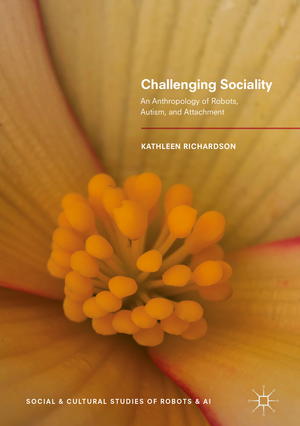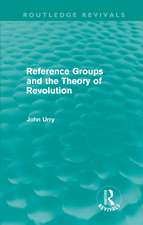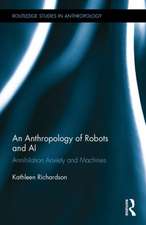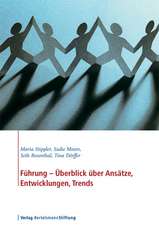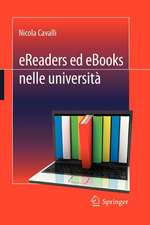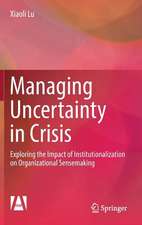Challenging Sociality: An Anthropology of Robots, Autism, and Attachment: Social and Cultural Studies of Robots and AI
Autor Kathleen Richardsonen Limba Engleză Hardback – 16 iul 2018
This book explores the development of humanoid robots for helping children with autism develop social skills based on fieldwork in the UK and the USA. Robotic scientists propose that robots can therapeutically help children with autism because there is a “special” affinity between them and mechanical things. This idea is supported by autism experts that claim those with autism have a preference for things over other persons. Autism is also seen as a gendered condition, with men considered less social and therefore more likely to have the condition. The author explores how these experiments in cultivating social skills in children with autism using robots, while focused on a unique subsection, is the model for a new kind of human-thing relationship for wider society across the capitalist world where machines can take on the role of the “you” in the relational encounter. Moreover, underscoring this is a form of consciousness that arises out of specific forms of attachment styles.
| Toate formatele și edițiile | Preț | Express |
|---|---|---|
| Paperback (1) | 675.23 lei 38-44 zile | |
| Springer International Publishing – 14 dec 2018 | 675.23 lei 38-44 zile | |
| Hardback (1) | 779.08 lei 43-57 zile | |
| Springer International Publishing – 16 iul 2018 | 779.08 lei 43-57 zile |
Preț: 779.08 lei
Preț vechi: 950.09 lei
-18% Nou
Puncte Express: 1169
Preț estimativ în valută:
149.07€ • 156.07$ • 123.35£
149.07€ • 156.07$ • 123.35£
Carte tipărită la comandă
Livrare economică 07-21 aprilie
Preluare comenzi: 021 569.72.76
Specificații
ISBN-13: 9783319747538
ISBN-10: 3319747533
Pagini: 160
Ilustrații: XVI, 156 p.
Dimensiuni: 148 x 210 x 12 mm
Greutate: 0.36 kg
Ediția:1st ed. 2018
Editura: Springer International Publishing
Colecția Palgrave Macmillan
Seria Social and Cultural Studies of Robots and AI
Locul publicării:Cham, Switzerland
ISBN-10: 3319747533
Pagini: 160
Ilustrații: XVI, 156 p.
Dimensiuni: 148 x 210 x 12 mm
Greutate: 0.36 kg
Ediția:1st ed. 2018
Editura: Springer International Publishing
Colecția Palgrave Macmillan
Seria Social and Cultural Studies of Robots and AI
Locul publicării:Cham, Switzerland
Cuprins
1. Challenging Sociality?.- 2. Autism, Social Attachment and Things.- 3. The Experiment: The Effectiveness of a Humanoid Robot for Helping Children.- 4. Reversing Roles with an Other: Echolalia and Pronoun Reversal.- 5. Attachment Theory and Autism.- 6. Psychiatry, Autism and the Machine.- 7. Sex Differences, Machines and Autism.- 8. A Multiple-Whole Approach to Autism.
Notă biografică
Kathleen Richardson is Professor of Ethics and Culture of Robots and AI at the Centre for Computing and Social Responsibility, De Montfort University, UK.
Textul de pe ultima copertă
This book explores the development of humanoid robots for helping children with autism develop social skills based on fieldwork in the UK and the USA. Robotic scientists propose that robots can therapeutically help children with autism because there is a “special” affinity between them and mechanical things. This idea is supported by autism experts that claim those with autism have a preference for things over other persons. Autism is also seen as a gendered condition, with men considered less social and therefore more likely to have the condition. The author explores how these experiments in cultivating social skills in children with autism using robots, while focused on a unique subsection, is the model for a new kind of human-thing relationship for wider society across the capitalist world where machines can take on the role of the “you” in the relational encounter. Moreover, underscoring this is a form of consciousness that arises out of specific forms of attachment styles.
Caracteristici
Explores how robots are imagined as occupying a unique liminal space between the human and the nonhuman Examines how robots are put to use to help children with autism develop social behaviours and skills Helps to create a new narrative around stigma, autism spectrum disorders, and society
